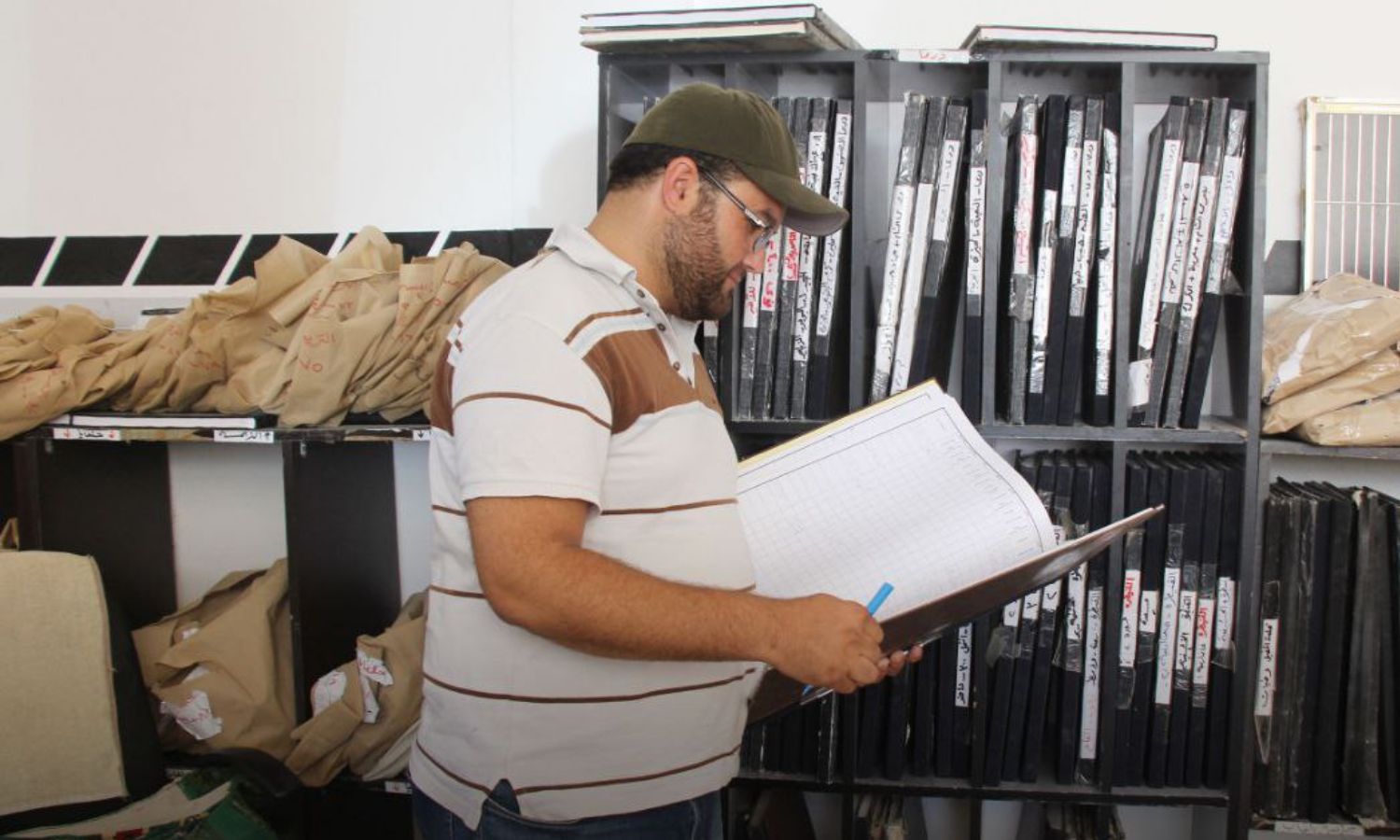



Idlib – Anas al-Khouli
The Syrian Salvation Government (SSG) operating in Idlib announced the cessation of work in all civil affairs departments under the Ministry of Interior’s Civil Registry for ten days, starting from July 17, to complete the automation of the civil registry system and transition to a single-window system.
Work is set to resume on July 27, according to the Salvation Government’s decision. Residents hope the mechanism for issuing identity documents will improve, especially for those displaced to the area. Northwest Syria currently hosts 5.1 million people, 3.4 million of whom are internally displaced.
Residents face difficulty and delays in obtaining necessary identity documents. The situation is even more challenging for the displaced, as specific civil registry departments have been set up far from their residences, such as the department for displaced persons from Daraa and Quneitra in the town of Qah, the department for Latakia in Jisr al-Shughour, and the department for Damascus and its countryside in Maaret Misrin.
Abdullah al-Ali, displaced from Quneitra and residing in Idlib city, told Enab Baladi that all civil registry offices in the city were easily accessible to the displaced before the Salvation Government relocated them to Qah, northern Idlib, without an apparent reason. The distance from Idlib city center to Qah is about 41 kilometers.
Al-Ali noted the difficulty of traveling to Qah for any civil registry-related work, such as registering children or obtaining a family record. He mentioned that he is a daily wage laborer, and his financial situation does not allow him to afford travel expenses.
Saeed Hallak faces similar difficulties. He is displaced from the rural outskirts of Damascus and resides in Idlib. However, he expressed optimism that the civil registry automation could be a positive step towards solving many of the displaced’s problems.
He said that since the displaced arrived in northern Syria, they have scattered in the region based on their work, suffering from the distance between their residences and the civil registry offices. This distance has prevented some from obtaining documents except when necessary.
Hallak explained that civil registry automation and the single-window system might encourage civilians, particularly the displaced, to obtain missing documents at nearby offices, eliminating the need for long travels and saving time.
According to the Salvation Government’s decision, all civil affairs departments will resume work on July 27 using the new electronic system.
Abdullah Abdullah, director of the Civil Affairs Directorate in Idlib, told Enab Baladi that the goal of automating the civil registry is to preserve records in an electronic library with multiple copies for quick access to required information, minimizing data transfer errors, and, most importantly, simplifying procedures and providing excellent service to citizens.
According to Abdullah, the new system has been activated in all departments in Idlib province, and the directorate is nearing the completion of automating records for the displaced from other provinces.
Abdullah explained that the new system will positively impact citizens by speeding up their requests and simplifying and speeding up procedures.
He mentioned that civil registry automation is part of the administrative and technical development of the Salvation Government, aiming to implement a single-window system. Citizens will be able to visit any civil affairs department to obtain the data they need.
In areas controlled by the Salvation Government, there are 25 civil registry offices distributed across the cities and towns under its control. Six new offices specifically for the displaced have been established.
Residents in northwestern Syria suffer from the presence of two governments: the Salvation Government in Idlib and the Interim Government in northern and eastern rural Aleppo. Neither recognizes the other, forcing residents to issue civil documents from both governments. Individuals have to carry an ID card issued by local councils in areas controlled by the Interim Government and another card issued by the Salvation Government.
if you think the article contain wrong information or you have additional details Send Correction